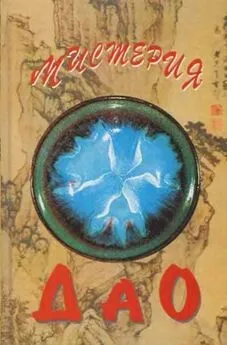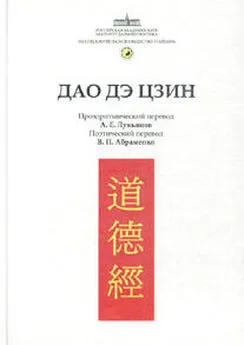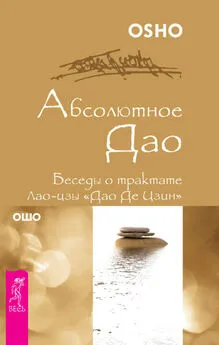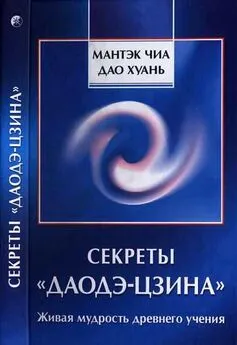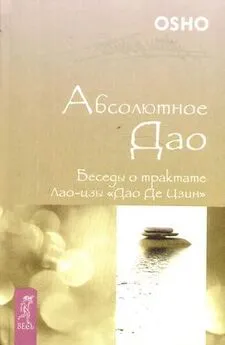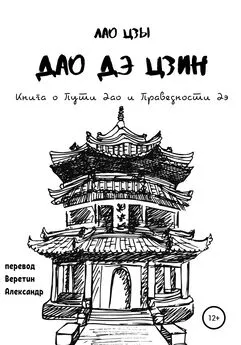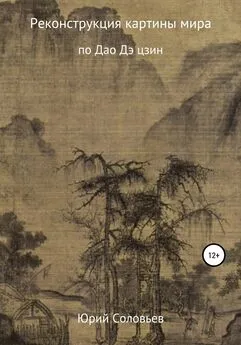Алексей Маслов - Мистерия Дао. Мир «Дао дэ цзина»
- Название:Мистерия Дао. Мир «Дао дэ цзина»
- Автор:
- Жанр:
- Издательство:Сфера
- Год:1996
- Город:Москва
- ISBN:нет данных
- Рейтинг:
- Избранное:Добавить в избранное
-
Отзывы:
-
Ваша оценка:
Алексей Маслов - Мистерия Дао. Мир «Дао дэ цзина» краткое содержание
Сборник-монография, посвящен основному трактату китайской мистической традиции: «Дао дэ цзин». Он содержит перевод текста, сделанный с учетом эзотерической традиции древнего Китая, комментарии блестящего ученого и мистика III в. (школа «Учение о Сокровенном») Ван Би, а также исследование и комментарии переводчика, известного китаеведа, специалиста в области духовных и эзотерических традиций, д.и.н. А.А. Маслова.
Яркой чертой издания является уникальное оформление символической графикой оккультно-мистических даосских рукописей, что дает возможность глубже погрузиться в мир китайской мистерии. Живой, образный язык перевода и исследования, позволяют пролить свет на многие тайны мистической мудрости древнего Китая. Книга содержит редкое факсимильное воспроизведение ксилографической версии трактата «Дао дэ цзин» Сун Сюэ XIV в.
Мистерия Дао. Мир «Дао дэ цзина» - читать онлайн бесплатно полную версию (весь текст целиком)
Интервал:
Закладка:
1977 Hsuing Y.T. Lao Tze, Tao Те Ching. Chinese Culture, Vol. 18, June, 1977, pp. 1-48. — Institute for Advanced Studies, China Academy, Taiwan. Lin P.J. A Translation of Lao Tzu’s Tao Те Ching and Wang Pi’s Commentary. Michigan Papers in Chinese Studies, No. 30. — Center for Chinese Study, University of Michigan, Ann Arbor.
Young R.Y.W. and Ames R.T. Lao Tzu: Text, Notes and Comments, by Ch’en Ku-ging. — Chinese Materials Center, San Francisco.
1979 Ju-Chou Yang and Chook E.K. Lao Tzyy Dow Der Jing. — Taipei. Ni Hua-ching, The Complete Works of Lao Tzu: Tao Teh Ching E Hua Ни Ching. Shrine of the Eternal Breath of Tao. — Malibu, California. Rump A. in collaboration with Wing Tsit Chan, Commentary on the Lao Tzu by Wang Pi. — University of Hawaii Press, Honolulu.
1980 Lao C’en, The Way of the Dao: An Interpretation of the Writing? of Lao Tzu. — Day Press, La Jolla. Leebrick J.R. Tao Teh Ching: Classic of the Way and Its Nature. — Afterimage Book Publishers, Urbana, Illinois.
1981 Man-jan Cheng, Lao-Tzu (translated by Tam C. Gibbs). — North Atlantic Books, Richmond, California. Hoff B. The Way to Life at the Heart of the Tao Те Ching (selections adapted from various translations). — Weatherhill, New York.
1982 Maurer H. Tao: The Way of the Ways. — Schocken Books, New York. McCarroll T. The Tao: The Sacred Way. — Crossroad, New York.
Wei H. The Guiding Light of Lao Tzu. — Theosophical Publishing House, Wheaton, Illinois.
1983 Iyer R. Tao Те Ching. Lao Tzu. — Concord Grove Press, Santa Barbara, California.
1984 Weiger L. The Wisdom of the Daoist Masters, translated from Freeh of Leon Weiger’s Les Peres du Systeme Taoiste by Derek Bryce. — Llanerch Enterprises, Llanerch, Felinbach, Lampeter, Dyfed, Wales.
1985 Heider J. The Tao of Leadership: Lao Tzu’s Tai Те Cging, Adapted for a New Age. — Humanics New Age, Atlanta, Georgia. Wilhelm R. Tao Те Ching: The Book of Meaning and Life, translated from German by H. G. Ostwald. — Routledge and Kegan Paul, London.
1986 Wing R.L. The Tao of Power. — Doubleday, Garden City, New York.
1988 Liu I-Ming, Awakening to the Tao (tr. by Thomas Clear ly). — Shambala Publications, Boston. Mitchell S. Tao Те Ching. — Harper and Row, New York.
1989 Chen E.M. The Tao Те Ching. — Paragon House, New York.
Henricks R.G. Lao-Tzu Te-Tao Ching. — Ballantine Books, New York. Yi Wu, The Book of Lao Tzu. — Great Learning Publishing Company, San Francisco.
1990 Mair V.H. Tao Те Ching: The Classic Book of Integrity and The Way. — Bartam Books, New York. Wu J.C.H. Tao Те Ching. — Shambala Publications, Boston.
Лисевич И.С. Дао дэ цзин Иностранная литература, 1992, № 1. — Москва.
1991 Chan А. К. Two Visions of The Way. A Study of the Wang Pi and the Ho-Shang Kung Commentaries on the LaoTzu. SUNY Press, Albany. Mitchell S. Tao Те Ching, — New York.
1992 LaFargue M. The Tao of the Tao Те Ching. — SUNY Press, Albany. Miles Th.H. Tao Те Ching: About the Way of Nature and Its Powers. — Avery Publishing Group, Garden City Park.
Weiger L. Tao Те Ching. Lao Zi. — Llanerch Publishers, Llanerch, Wales.
Summary
A book «The Mystery of Dao: the World of Dao De Jing» by Russian scholar and orientalist Dr. Alexei A. Maslov analyzes the sources, significance and substance of the early stage of Taoism especially of the very mystical philosophical circle related with the teaching of Lao-tzu and called «laoism». This work that constitutes a result of the author long-standing studies of the spiritual tradition of old China includes a full and up to date translation of Dao De Jing with Wang Bi’s commentaries, special studies of historical, spiritual background and author’s textological commentaries on Chinese texts.
A book possesses of 4 closely related parts. Author tries to show a wide range picture of the development of an early Taoism and Chinese mysticism in the second part of the 1-st millennium ВС.
The first part «Eternal Wanderer» represents a history and main idea of early Taoism called «laoism» by the name of Lao-tzu as the most brilliant representative of this school. Author especially uses the notion «laoism» to divide the early stage of development of Chinese mysticism from the late stage represented by the Taoist alchemy, art of the reaching «eternally life», meditative methods.
We must differ the real Lao-tzu as a philosopher and mystic from the mythological personage of the same name. The last one was made sacral as a «Lord Lao-jun», that became a hero of a popular tradition and a local spirit. It is very hard to say something precision about the life and activities of the real Lao-tzu. He was a «bookkeeper». It seems that Lao-tzu was not a creator of the main Taoism philosophical stream nor the one of the Taoist school. He belonged to the stratum of «shi» — a class of individuals, drawn from downwardly mobile nobility, so called «small hoses». Representatives of a such class had served as bookkeepers (like Laotzu), minor administrators, scribes, etc. The most important character of their state of mind was a highly developed sense of social responsibility that draw there toward the creation of concepts of the harmonization of the Underhaven.
So we must separate a very mobile and complex circle of philosopher (often had no any connections with each other) that can be named as «laoist» that differ there representative from the later Taoism. In the same time this branch was not purely philosophical school that was based on the esoteric speculation without special mystical practice. Dao De Jing shows only the initiative or speculative level of the large tradition that also includes very complex rituals and liturgy the reminicenses of wich can be seen in some paragraphs.
It is no any evident proof that Lao-tzu was an author of Dao De Jing but he can be one of the compiler of this text. In the base of Dao De Jing lay the citation of mystics, popular proverb, saying about spirits. This compilation we can name as «agrafa» the citation of that had no connections nether with later Taoism (e. g. alchemy, prolongation of life) nor with any stable spiritual traditions. These citations were commented by «laoists» in the spirit of their concept о life and searching «the benefit of Dao». This can explain the very complex, inconstant and very variable structure of paragraphs and its meaning that seems to be in some contradiction with each other. Formally we must speak about the Dao De Jing as a meditative (so as a non-logical or metha-logical) text and as a text of initiations, mystical visualization. Lao-tzu put into words only the textological part of very complex spiritual and prereligious traditions. Some paragraphs are related with the.very archaic traditions expressed by the meaning of «sprite of valley», «mysterious female», etc.
The passages that deal with «Dao» as the «ancestor», «the One» and «the refuge for the myriad of things» indicates that in the later part of the first millennium ВС. begun to form a monotheistic concept of some non-formalized God or Highest Spirit. This development was interrupted and the further genesis of Taoist teaching was directed toward the occultism, polytheism and immortality.
At the same time Dao De Jing in some part is closely related with the political and social situation of that time — the struggle between states, increasing of the difference between «big» and «small hoses», between «shi» and highest aristocracy that expressed in the Doctrine of the «returning to the simplicity» and «desire non-desire».
The second part that is a focus of the book includes a facsimile copy of Dao De Jing of the XIV c. and the translation of Dao De Jing. This translation is based mainly on the Wang Bi’s edition of Summary this text but author also analyzes two versions find in Mawangdui in 1973 and explain the substance of differences between these versions. In general the Mawangdui version differs from others in chapter order. Comparing different editions of the text author draw a conclusion that differences between them can be explained not only by the errors, but also by the contrariety in political, ideological and mystical views of its editors. Beside it author takes into consideration texts and commentaries more that dozen version of Chinese commentator from III c. up to day. The third part of the book consists of the translation of Wang Bi’s commentaries on Dao De Jing. In the III c. this text was commented by Wang Bi that emphasis the concept of «being» (something — «you») and non-being (nothingness —»wu»), so it forms the very specific «double» commentaries or «commentaries on commentaries». Wang Bi — one of the foremost representative of xuanxue school («Teaching of Sacral») also symbolizes the beginning of secularization of mystical laoist tradition and a formation of a separate philosophical school that try to combine the Confucian serving to the Lord and taoist «wandering of mind without obstacles». Author also analyzes the mining of main notions of xuanxue and the reasons of the declining of this one of the most brilliant mystical tradition of China.
The forth part of the book consists of author’s textological commentaries on Dao De Jing, analyze of main philosophical notions of the Text and structure of paragraphs. It can be seen two or more level in paragraphs that prove a fact of the phased compilations of parts of the text. Author also explains the meaning of some Chinese characters changed its meaning in later times that bring to the misunderstanding of some passage of the text. The translator and author of this Alexei Maslov graduated from the Institute of Asia and Africa Studies of Moscow University and works as a senior research fellow in the Department of East Asia Spiritual culture Studies of the Institute of Far Eastern Studies, Russian Academy of Science. He specializes in East Asia spiritual and religious traditions’ studies, popular rituals and national psychology. In 1993 he has had his Ph.D. on the traditions of secret societies in modern China and in 1995 he had his second Doctorate on the history and philosophy of Chinese martial arts. Alexei Maslov is the author of several books on the oriental civilization.
МИСТЕРИЯ ДАО Мир Дао дэ цзина
Редактор
Д.Н. Попов
Корректор
Н.В. Иванова
Художественное оформление
Д.Н. Попов
Технические редакторы: А.В. Глушко, Н.К. Протасова
Подписано в печать 21.11.95 Формат 84х 108/32. Гарнитура «Академия». Печать офсетная. Бумага офсетная.
Зак. Е-310. Тир. 5000.
ЛР № 030065 от 26.07.91
Издательство «Сфера» Российского Теософского Общества 123022, г. Москва, ая 9
тел.: (095) 205-23-78 Директор: Пилишек С.В. Коммерческий директор: Волков А. Б. Главный редактор: Попов Д.Н.
Отпечатано с диапозитивов в типографии Татарского газетно-журнального издательства. 420066, г. Казань, ул. Декабристов, 2.
Примечания
1
Последняя фраза есть лишь в версиях Кондо[9] и в издании «Сы бу бэй яо» [12]. По даосским представлениям человек обладает тремя небесными душами-хунь и четырьмя земными душами-по, которые после смерти соответственно воспаряют в Небо или уходят в землю. Комментируя этот пассаж, Хэ Шангун отметил, что по — это материальные или животные души, обитающие в легких человека, а хунь — «духовные» или тонкие души, обитающие в печени [28, цзюань 10].
Читать дальшеИнтервал:
Закладка:
